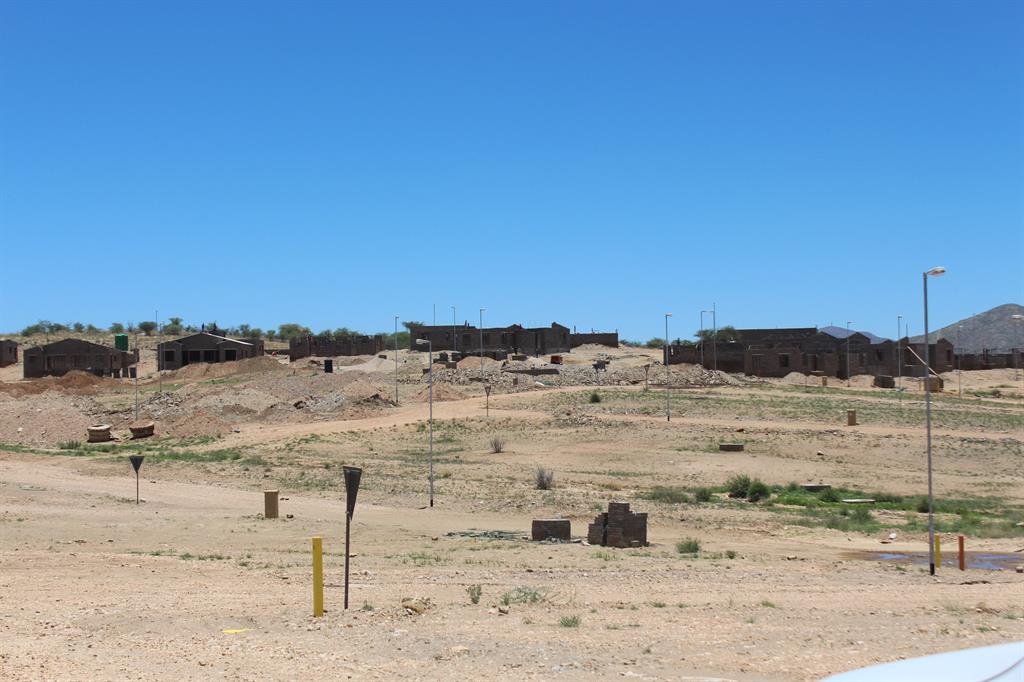Red tape delays housing handover
Windhoek town planning constraints and red tape, along with a host of other troubles, are to blame for the protracted delays in the handing over of more than 300 low-income homes built under the government's mass housing scheme.
Last week the urban and rural development ministry, in response to posts on social media, issued a statement to clarify questions surrounding a low-income housing project in Windhoek's Otjomuise Extension 10 suburb, where construction began in 2014.
Daniel Nghidinua, executive director in the ministry, said despite public comments to the contrary, the 362 houses that were completed are not yet ready for occupation because they are not connected to services such as sewerage, water and electricity.
He confirmed that to date 3 985 houses have been handed over to the needy around the country since 2014.
However, a further 1 100 houses, including those in Otjomuise, have not been completed.
He said these houses were structurally complete but were not ready for occupation because the bulk services components (sewerage, water and electricity) were lagging behind.
Red-tape delays at the municipality of Windhoek were to blame, he said.
These delays were related to zoning and finalising the design of bulk services.
“Accordingly, insinuations or allegations that they [the houses] are ready for occupation and the government is seemingly keeping them unoccupied, are not correct,” Nghidinua said.
He added that the revised town planning layout had been approved in December 2018 and the general plans were currently before the surveyor-general for consideration and approval.
“Under normal circumstances, bulk services installation precedes the construction of houses,” he said, but in this case the building project was given the green light before the town planning requirements were met.
He added that all parties involved were “doing everything possible to expedite the remaining processes so that the project can reach practical completion and for the houses to be ready for occupation in the shortest possible time”.
Too slow
The Otjomuise housing project started more than four years ago.
Nghidinua said in terms of town planning regulations, Otjomuise Extension 10 had been zoned for single residential development.
However, the development proposal approved by the National Housing Enterprise (NHE), which was implementing the project, provided for a mix of housing types, including high-rise flats and more housing units than the existing municipal services were designed for.
JANA-MARI SMITH
Last week the urban and rural development ministry, in response to posts on social media, issued a statement to clarify questions surrounding a low-income housing project in Windhoek's Otjomuise Extension 10 suburb, where construction began in 2014.
Daniel Nghidinua, executive director in the ministry, said despite public comments to the contrary, the 362 houses that were completed are not yet ready for occupation because they are not connected to services such as sewerage, water and electricity.
He confirmed that to date 3 985 houses have been handed over to the needy around the country since 2014.
However, a further 1 100 houses, including those in Otjomuise, have not been completed.
He said these houses were structurally complete but were not ready for occupation because the bulk services components (sewerage, water and electricity) were lagging behind.
Red-tape delays at the municipality of Windhoek were to blame, he said.
These delays were related to zoning and finalising the design of bulk services.
“Accordingly, insinuations or allegations that they [the houses] are ready for occupation and the government is seemingly keeping them unoccupied, are not correct,” Nghidinua said.
He added that the revised town planning layout had been approved in December 2018 and the general plans were currently before the surveyor-general for consideration and approval.
“Under normal circumstances, bulk services installation precedes the construction of houses,” he said, but in this case the building project was given the green light before the town planning requirements were met.
He added that all parties involved were “doing everything possible to expedite the remaining processes so that the project can reach practical completion and for the houses to be ready for occupation in the shortest possible time”.
Too slow
The Otjomuise housing project started more than four years ago.
Nghidinua said in terms of town planning regulations, Otjomuise Extension 10 had been zoned for single residential development.
However, the development proposal approved by the National Housing Enterprise (NHE), which was implementing the project, provided for a mix of housing types, including high-rise flats and more housing units than the existing municipal services were designed for.
JANA-MARI SMITH





Comments
Namibian Sun
No comments have been left on this article